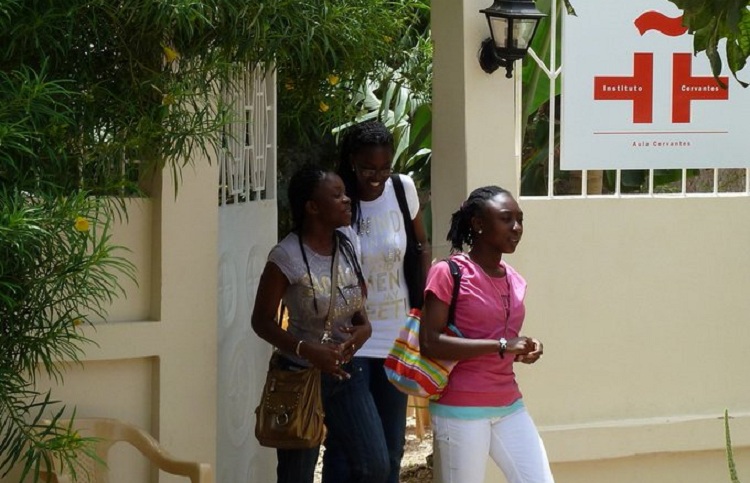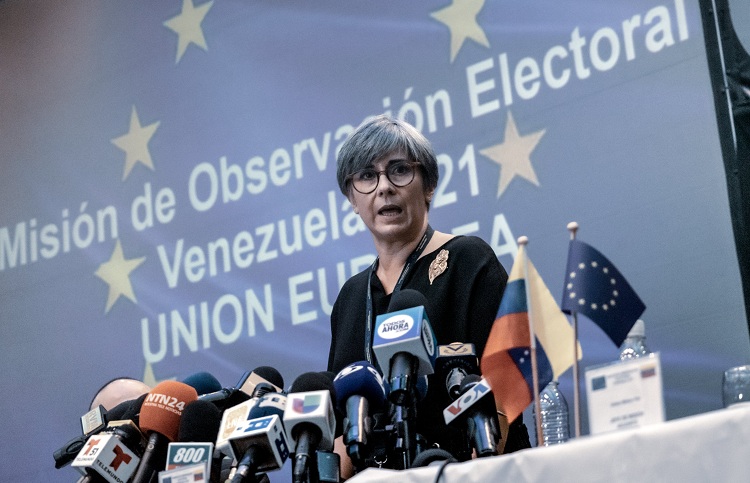Eduardo González
Queen Letizia will inaugurate today the new center of the Instituto Cervantes in Dakar (Senegal), which will finally realize the reiterated desire of this institution of Spanish cultural diplomacy to have a real spearhead for the dissemination of Spanish in sub-Saharan Africa.
The inauguration ceremony (which will take place at noon Spanish time) will feature speeches by the director of the Instituto Cervantes, Luis García Montero, and the Secretary of State for Ibero-America, the Caribbean and Spanish in the World, Juan Fernández Trigo, who will highlight the importance of the work that this strategic center will perform in promoting Spanish and its culture in that subcontinent. Olga Cabarga, Spain’s ambassador to Senegal, will also attend.
Approved by Royal Decree in April 2019, the creation of the center in Dakar had become one of the main objectives of the Instituto Cervantes as part of its expansion in Sub-Saharan Africa, a region in which, to date, the institution only had two Aulas Cervantes: the one in Dakar, created in 2010 as part of a collaboration agreement the Cheikh Anta Diop University and which will continue to operate (and which the Queen visited on December 12, 2017), and the one in Abidjan (Ivory Coast), created recently.
Directed by Néstor Nongo Nsala, born in the Democratic Republic of Congo and naturalized Spanish, the Dakar Cervantes center occupies a two-story building of 680 square meters located on a plot of 1,500 meters. The President of the Government, Pedro Sánchez, visited the center on April 9, when it was still undergoing renovation work. The center is located very close to the prestigious Cheikh Anta Diop University (UCAD), which has a Spanish section in the Department of Romance Languages.
In addition to teaching Spanish classes to enrolled students and hosting events to promote the culture of Spain and Latin America, the new center will help the more than 3,000 Spanish teachers in Senegal and collaborate with the country’s educational system. The Dakar center will also be responsible for implementing the general policy of the Instituto Cervantes in West Africa, “with the general objective of expanding its presence abroad in order to meet the needs detected and to promote the teaching, study and use of Spanish, as well as to disseminate Spanish culture,” according to the government. The Dakar Cervantes Center will operate under the hierarchical dependence of the Spanish Embassy, to which it will provide advice and technical support, without prejudice to its organic and functional dependence on the Instituto Cervantes, which is responsible for its internal organization and budget.
Presence in Africa
The presence of the Instituto Cervantes in Africa has focused mainly on the north of the continent, where it has eleven centers: Morocco (Marrakech, Casablanca, Rabat, Tangier, Tetouan and Fez), Egypt (Cairo and Alexandria), Tunis (Tunis) and Algeria (Algiers and Oran). In addition, there are extensions (of lower rank) in the cities of Kenitra, Meknes, Nador, Agadir, Al Hoceima, Chaouen, Larache (all in Morocco) and Mostaganem (Algeria).
On the other hand, the presence has been much lower in Sub-Saharan Africa, despite the fact that this region is, with more than one and a half million students, the third region in the world in terms of the number of students of Spanish. The country with the most students of Spanish in the region is Ivory Coast, which has more than 566,000 students in institutes, high schools, universities, private teaching centers and teacher training schools, and ranks fifth in the world behind the United States, Brazil, France and Italy. It is followed by Benin (with 412,515 students of Spanish), Senegal, Cameroon, Gabon and Equatorial Guinea, all of which are among the 20 countries in the world with the most students of our language.
Senegal is one of the 19 countries in sub-Saharan Africa where students of Spanish can obtain the DELE Spanish Diploma. Interest in the Spanish language – and in its certification through the official diploma – has been boosted thanks to the support of the Senegalese state, which, through its Ministry of Education, offers free Spanish teaching to more than 240,000 students in the public education system.
In addition, in Sub-Saharan Africa there are a total of 23 DELE examination centers in Cape Verde, Cameroon, Ivory Coast, Ethiopia, Gabon, Equatorial Guinea, Kenya, Madagascar, Mauritius, Mauritania, Mozambique, Namibia, Nigeria, Senegal, South Africa, Sudan, Togo, Djibouti and Zimbabwe. There are also nine SIELE (Servicio Internacional de Evaluación de la Lengua Española) test centers in Cape Verde, Ivory Coast, Gambia, Ghana, Guinea-Bissau, Guinea Conakry, Mali, Nigeria and Senegal.







